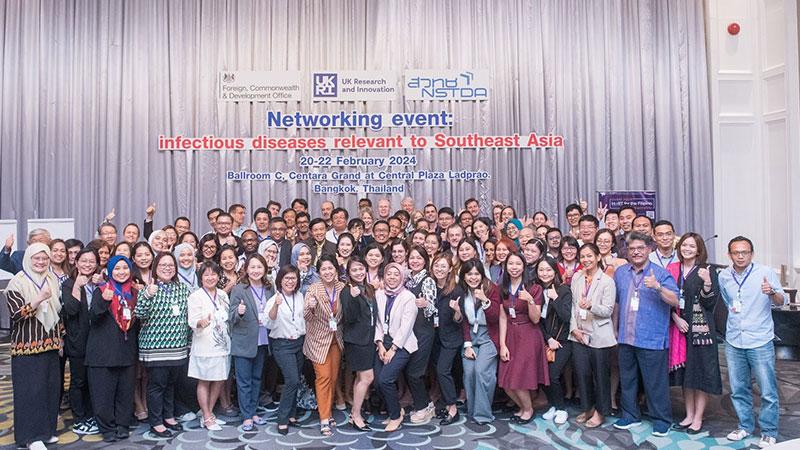In February Dr Saki Raheem, Reader in Biological Chemistry and Biochemistry, represented the UK and the University of Westminster at an anti-microbial resistance networking event organised by UK Research and Innovation (UKRI) in Bangkok, Thailand.

The UKRI event saw researchers from institutes across the UK and South East Asia come together in Bangkok, Thailand, to share ideas about infectious diseases and anti-microbial resistance. The networking event was part of a new scheme organised by UKRI to encourage and support collaboration between academics from the UK and South East Asia concerning infectious diseases.
Westminster was one of very few post-92 universities to be picked for the scheme and Dr Raheem was one of only ten researchers from the UK to attend. Over the four days he networked with other academics in the field, established links and engaged in discussions about potential collaborations.
Dr Raheem’s research focuses on antimalarial, antitubercular and natural product chemistry drug discovery. With Southeast Asia bearing a substantial burden of these diseases, he attended the event with the aim of gaining a deeper understanding of the regional context, understanding the challenges facing the area and exploring the potential avenues for collaborative research around this topic.
Westminster’s School of Life Sciences possesses expertise in critical fields such as virology, parasitology, microbiology, organic/medicinal chemistry, structural biology and cutting-edge biophysical techniques. This diverse range of expertise positions Westminster as a hub for comprehensive research capable of addressing the multifaceted challenges posed by infectious diseases, including those with epidemic potential and antibiotic resistance.
The UKRI has now opened a call for researchers to put forward a funding application for a project related to infectious diseases and micro-microbial resistance. Thanks to the event, Dr Raheem has partnered with colleagues from the Philippines and together aim to bring an idea to the UKRI in a bid for the funding.
About the networking event Dr Raheem said: "The network presented a valuable opportunity to exchange ideas with colleagues from South-East Asia, all working towards a shared objective and fostering collaboration."
Dr Raheem’s work is contributing toward the Good Health and Well-being (3) development goal of the United Nations’ 17 Sustainable Development Goals (SDGs) which were adopted by the University of Westminster to help make the University a more sustainable, responsible and inclusive place to live, work and study.
Find out more about the School of Life Sciences at the University of Westminster.


